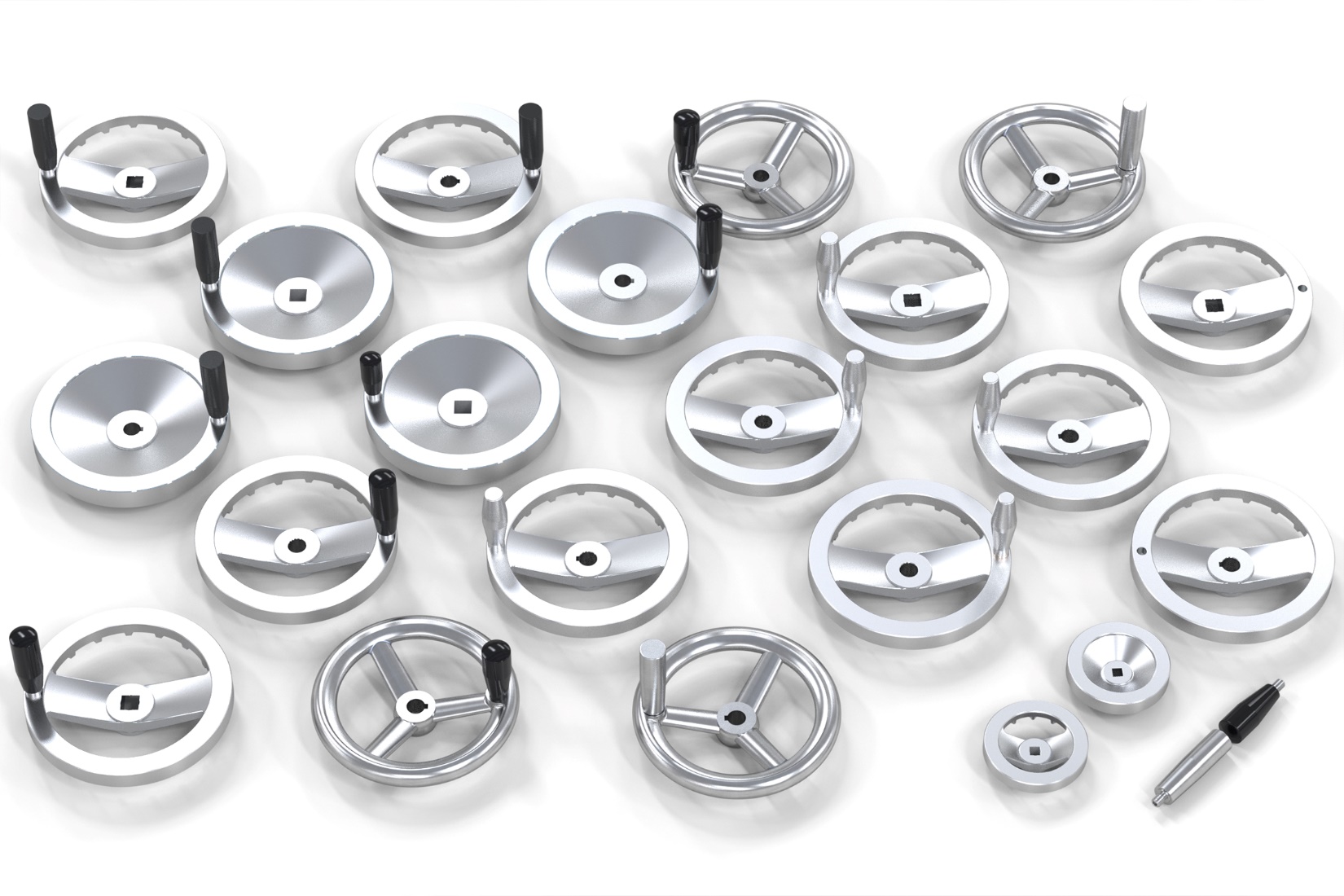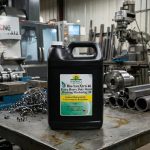Handwheels
Handwheels
Stainless steel, cast iron and aluminium handwheels each have their unique safety features. Stainless steel is naturally resistant to bacterial growth, making it the ideal choice for hygiene-sensitive areas. Cast-iron handwheels, when coasted with zinc or chrome, offer protection against corrosion. Aluminium handwheels, on the other hand, are known for their lightweight nature and resistance to rust, which can be especially beneficial in environments where weight and longevity are factors.

WDS Components Ltd (WDS) responds adeptly to the needs of machinery manufacturers by offering a diverse range of material choices, notably stainless steel, cast iron and aluminium handwheels, each tailored to meet specific industry requirements. Each type of handwheel serves the same fundamental purpose – manual operation of machinery – but come with distinct features and advantages that make them suitable for different applications.
Material properties and application
Stainless steel handwheels are favoured in sectors that require high resistance to corrosion and chemicals, such as the food processing, medical and pharmaceutical industries. Comprising of grades like 304 and 316 stainless steel, these handwheels stand up to harsh environments while maintaining their structural integrity. Their polished aesthetic, coupled with bakelite or stainless grips, make them especially suited for marine or food and beverage applications.
Cast iron handwheels excel in heavy-duty applications where sturdiness and high mechanical strength are required. Used widely in manufacturing, these handwheels can withstand substantial load pressure and often come at a lower cost than their stainless steel counterparts.
Aluminium handwheels stand as a budget-friendly alternative. This lightweight choice is perfect for applications requiring easy manoeuvrability and with the recent release of bakelite grips for them, operators get both efficiency and comfort.
Design
WDS offers handwheels in a variety of designs, ensuring the ideal fit for every application. From spoked to dished designs with a central mounting hole, these handwheels cater to specific needs, whether it's a pilot, round, square, or keyway design. With diameters ranging from a compact 80 mm to a substantial 500 mm, they provide versatility for a wide array of machinery configurations.
Recent additions to the handwheel range from WDS include cast-iron models with diameters of 140 mm with 14 mm and 16 mm bores and 180 mm diameter with additional borehole sizes. Additionally, bakelite grips have now been introduced for its aluminium handwheel range.
Safety and maintenance
Stainless steel, cast iron and aluminium handwheels each have their unique safety features. Stainless steel is naturally resistant to bacterial growth, making it the ideal choice for hygiene-sensitive areas. Cast-iron handwheels, when coasted with zinc or chrome, offer protection against corrosion. Aluminium handwheels, on the other hand, are known for their lightweight nature and resistance to rust, which can be especially beneficial in environments where weight and longevity are factors.
Customisation, add-ons and availability
Complementing its comprehensive selection of handwheels, WDS provides tailored accessories for varied industrial requirements.
Fixed grips: Enhancing precision in machine operation, these grips are available in aluminium, bakelite, steel and stainless steel. They come in both male and female threaded versions, with many designs available to enhance user comfort with their ergonomic feel.
Parallel shaft keys: Also known as feather keys, these are designed for hand wheels with a keyway. They ensure consistent handwheel operation. With a broad range of sizes available, they are manufactured to meet DIN6885A standards ensuring a secure fit and dimensions that align perfectly with the shaft diameter.
Revolving grips: For swift handwheel operation, WDS offers male threaded, rotating grips in aluminium, stainless steel and bakelite.
Customers can directly order these add-ons alongside a wide array of handwheels direct from the WDS website at www.wdscomponents.com, along with many other products available for same-day shipping. WDS's stock guarantee also ensures a 10% discount on any applicable order that they can't fulfil from current stock. Detailed product specifications and CAD images can also be found on the WDS website.





